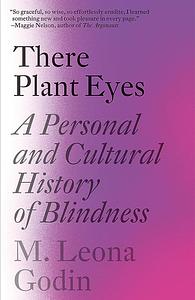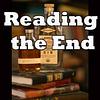Take a photo of a barcode or cover
informative
reflective
medium-paced
informative
reflective
slow-paced
funny
informative
slow-paced
informative
Depictions of blind people abound in popular culture, from the blind prophet Tiresias in classical antiquity to the Marvel superhero Daredevil. Yet few of these stories highlight the experiences of real blind people, and even fewer are written by blind creators. Writer and performer Godin makes a passionate argument for placing blind people at the center of their own stories. She delves into the metaphorical, biological, and societal aspects of blindness, drawing not just from history and literature but from her own experience of becoming blind over the course of her life. There Plant Eyes is an insightful and wide-ranging book that asks sighted readers to examine the myriad ways in which our culture uses concepts of blindness as metaphor or morality tale while simultaneously ignoring the existence, insights, and experiences of blind people. Even in its lapses—Godin says little, for instance, about how race, ethnicity, or sexuality inflect blind experience, representation, or community—There Plant Eyes speaks eloquently and urgently to the necessity of making space for blind thinkers within our ocular-centric world.
informative
reflective
medium-paced
challenging
funny
informative
slow-paced
challenging
funny
informative
reflective
slow-paced
Juxtapositions. There Plant Eyes excavates plenty of them.
At the meat of it: “What I’m wrestling with…is the concept of blindness that our ocularcentric culture extols on the one hand and dismisses on the other.” Blind guides, bards and seers are linchpins in traditional Euro-originated literature. There is no paucity of this trope: those who have lost one sense to heighten another, those who gave up their sight in one realm only to gain it in another. Despite this literary reverence for blindness, Dr. Godin contends with the lived experience of blindness, which is at odds with the rich lineage of blindness of Eurocentric literature.
The next juxtaposition: Dr. Godin’s wry wit and humor pokes out throughout a groundbreakingly erudite text. In some places, I am reading what feels like a PhD thesis, but then...I am laughing? Somehow, Dr. Godin’s style brings the reader “in on” whatever she topic she is covering - and the book is capacious. From portrayals of the blind in media, to parenting, to the fraught history of Braille, Dr. Godin’s chronicling is not just irrefutable, but accessible. I not only learned the word “ocularcentrism”, but I also now deeply understand my place in it.
This one is more of an oxymoron: That I would recommend this book a hundred times over to EVERYONE but I also left these pages on a note of dissatisfaction. There Plant Eyes faces a monumental task - chronicling a “a personal and cultural history of blindness” - which probably means starting at the dawn of humankind. So there’s the meat of my dilemma. How could one book rise to such a byzantine demand? As Dr. Godin asserts in the book multiple times, there is not one experience of blindness, and she has been generous with her own experience of retinal dystrophy in context of the European literary tradition. However, she has unraveled my own ignorance of blindness from an intersectional lens, so I left wanting more media like this - lush, engaging, munificent, and wickedly smart.
informative
reflective
medium-paced








